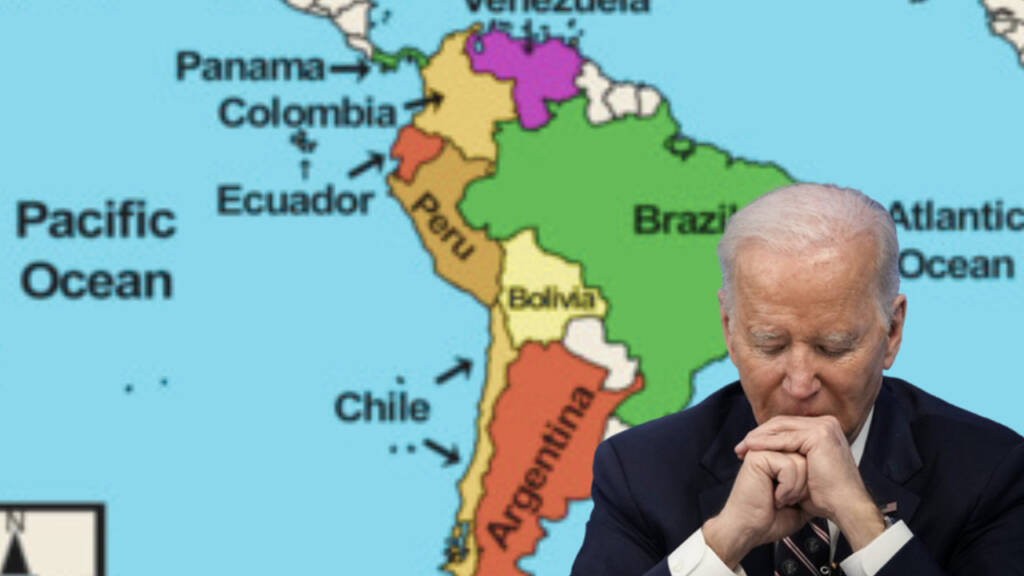The formation of the Rede Futuro bloc, a new alliance of left-wing political parties in South America, was seen as a significant challenge to the traditional power structures and alliances in the region. However, recent reports suggest that the Rede Futuro bloc is losing its steam even before its formation.
What is Rede Futuro and will it continue to exist or fade away. Stay tuned to find out.
In recent years, South America has seen a surge in left-leaning governments, challenging the traditional power structures and alliances in the region. One of the most significant developments in this regard was the formation of the Rede Futuro bloc, a new alliance of left-wing political parties aimed at challenging the dominance of the Sao Paulo Forum.
Sao Paulo forum, established in 1990, unites 123 left-wing parties from 27 nations in Latin America and the Caribbean.
The forum has been involved in campaigns against neoliberalism, imperialism, and foreign intervention in the region, and it has advocated for regional integration and solidarity among progressive movements.
However, recent reports suggest that the Rede Futuro bloc’s formation is losing steam. Brazilian media has reported that three prominent left-wing leaders, PSOL President J. Medeiros, Gustavo Petro, and Guilherme Boulos, were expected to participate in the bloc’s formation. However, it has been revealed that neither Petro nor Boulos showed up.
Read more: The US could learn a lot from Cuba’s healthcare system
The Workers’ Party (PT) of Brazil had planned to send an observer to the event, but Valter Pomar, a member of the PT’s national directorate and historian, said that the party would not be attending. He stated that “Our enemies are different – it’s the right, it’s neoliberalism and imperialism. Democracy involves holding the activities you want and inviting whoever you want. Everyone can choose their friends and enemies.”
Rede Futuro will focus on issues such as the climate crisis, feminism, and human rights. This is in contrast to the São Paulo Forum’s focus on anti-imperialism, anti-capitalism, and socialism.
Pomar’s comments highlight the internal divisions within the left-wing political movements in South America. While there is a broad consensus on the need to challenge the dominance of neoliberalism and imperialism in the region, there are significant differences in strategy and tactics.
One of the main points of contention is the relationship with Cuba. The traditional Sao Paulo Forum, which includes Venezuela, Nicaragua, and Cuba, has been a staunch supporter of the Cuban government. However, some within the left-wing movement in South America see Cuba as an obstacle to the region’s liberation.
Also Read: The three amigos are plotting Latin America’s downfall
The Rede Futuro bloc was seen as an attempt to create an alternative to the Sao Paulo Forum that would be more NATO-friendly, basically a stooge of the US.
Moreover, the absence of Gustavo Petro, a prominent left-wing leader in Colombia, is a major blow to the Rede Futuro and to the alliance of new-left or the progressives. It is seen as a positive development for Colombian-Venezuelan relations.
Petro has been a vocal supporter of the Maduro government in Venezuela. In February, Colombia and Venezuela signed a deal to revive their trade relationship. The revival of trade between Colombia and Venezuela is expected to have a positive impact on both economies.
The two have also signed an agreement which involves the export of natural gas from Venezuela to Colombia, which will help ease Colombia’s energy crisis. Rede Futuro, could have thrown shade over Venezuela and that could have been bad news for Colombian and Venezuela relations.
Rede Futuro was marketed as a new left platform for the continent, but it has failed to deliver on its promises, as seen by the absence of Petro and Brazil’s Boulos. Boric’s neoliberal values and perceived alignment with the White House have led to a decline in his popularity in his own country.
While Rede Futuro was an attempt by the West to penetrate the official channels and the left of the continent, it has been unsuccessful so far. Hence, South America should remain cautious, as imperial and capitalist forces are persistent in their pursuit. History has taught us this.
https://www.youtube.com/watch?v=c_7lF-1d-ZY
